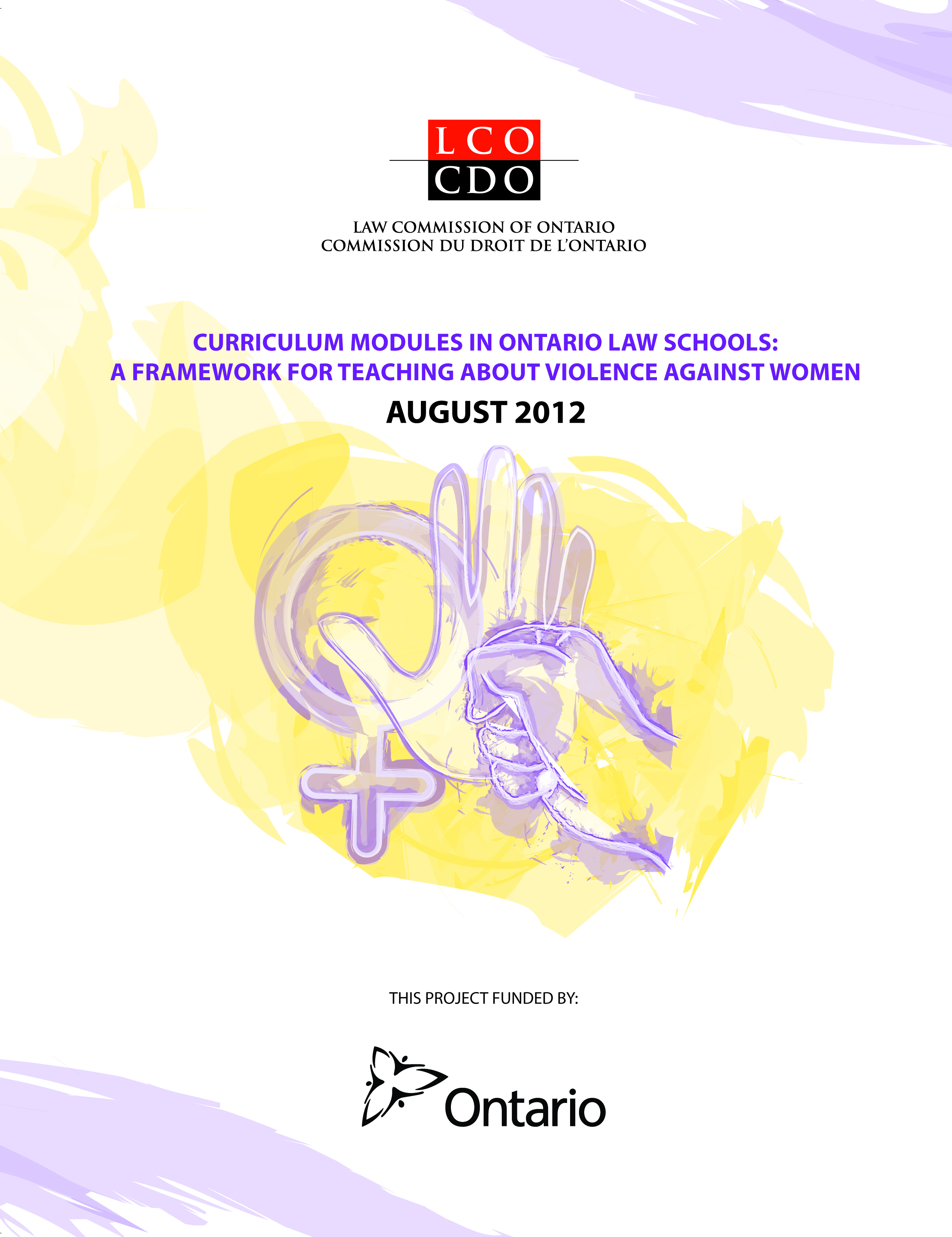
LCO Executive Director Patricia Hughes wants every student to graduate from law school with some understanding of violence against women. “It’s about being a competent lawyer,” she told a group of approximately 40 students, faculty and community members at Queen’s University. Hughes was at the Kingston, Ontario campus October 29 to unveil the LCO’s new Ontario-wide curriculum modules on violence against women.
“Our goal is for all law students, not just those planning to practise family, criminal or tort law, to learn how to address these issues and work with clients who have experienced or perpetrated violence,” says Hughes.
Developed by the LCO with funding from the Ontario Women’s Directorate, the curriculum modules will serve as a roadmap to help professors set the context for violence against women within every law course and explore key issues in courses such as ethics and professionalism, family and criminal law, immigration law and even real estate law, among others. The modules include recommendations on practical considerations, such as identifying at-risk cases and clients, and how to inspire trust, as well as recognizing the importance of considering culturally relevant factors. They may be incorporated into existing courses or applied as stand-alone seminars or intensive programs.
“Very few lawyers know anything about the realities and legal implications of domestic violence,” says Kathleen Lahey, a law professor and co-director of Feminist Legal Studies Queen’s (FLSQ). “It’s time that law schools take up part of the responsibility for preparing future lawyers to be able to address these issues in everything from estate and tax planning, to divorce litigation.”
According to Statistics Canada, 20% of all victims of violent crime are victims of spousal abuse. Of those who reported spousal abuse to police, 85% were women.
“It blows my mind that this is not already a required component of law school curricula,” says Michelle LaMarche, communications and education coordinator at Kingston’s Interval House, a non-profit organization committed to supporting women and children experiencing violence.
Describing the current approach to violence against women in Ontario’s law schools as “haphazard at best”, Hughes hopes the modules will help teach every Ontario lawyer to recognize the red flags and know what to do next.
Academics can’t continue to leave the subject of violence against women up to individual instructors, agrees Lahey. The LCO is offering “an extremely well thought out solution to a serious problem. This has the potential to be a truly transformative project.”
Hughes is currently discussing with law school representatives on the initiative’s advisory board and the LCO’s Law School Research and Liaison Group the most effective ways to incorporate the modules into the curriculum of each Ontario law school. The LCO is also sending the modules, available in English and French, to law schools throughout Canada.

